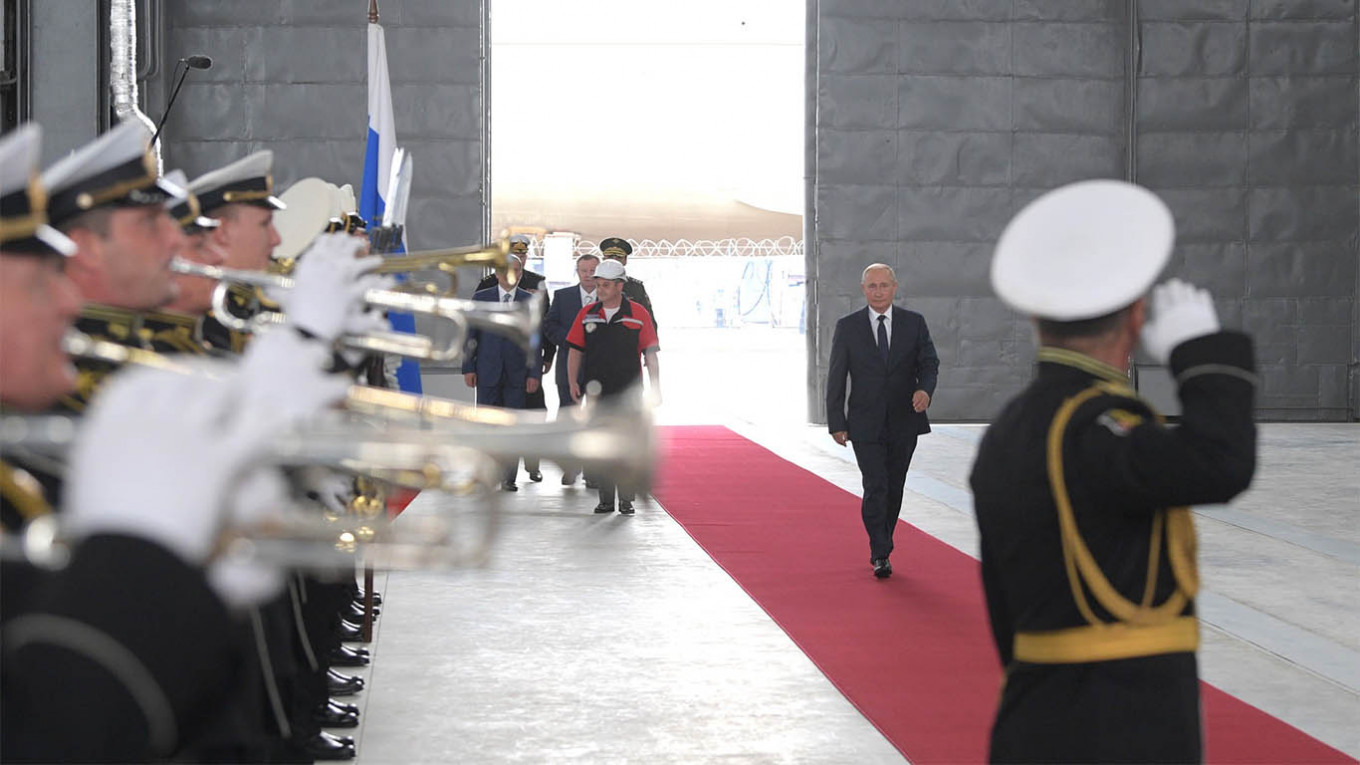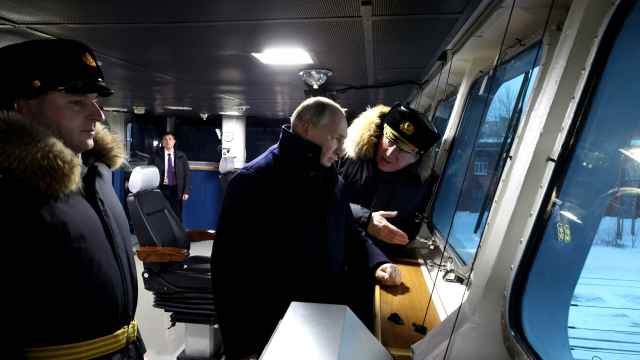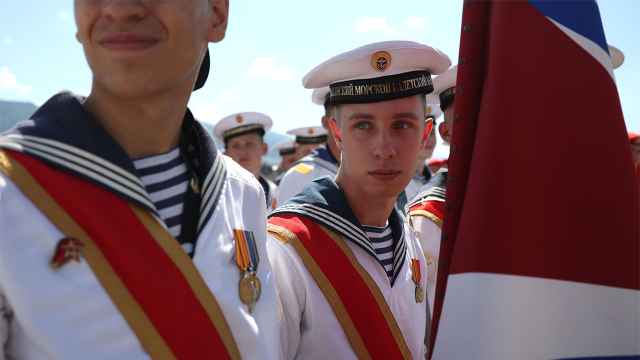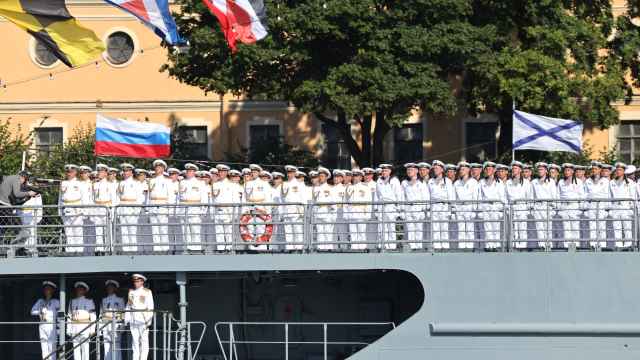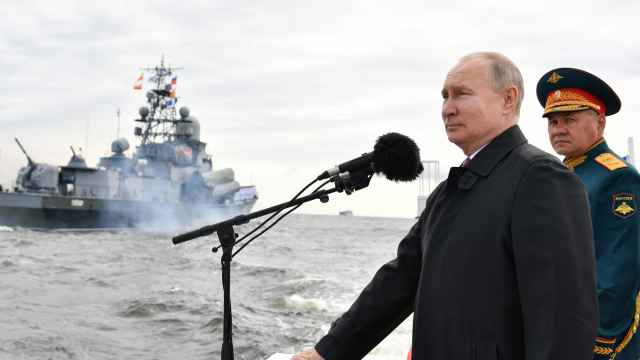President Vladimir Putin on Monday boasted of Russia’s naval capabilities and hailed the country’s response to the coronavirus during a keel-laying ceremony for new warships in Moscow-annexed Crimea.
Putin in recent years has called improving the Russian Navy's combat capabilities a priority. Speaking at the Zaliv shipyard in the city of Kerch, Putin said Russia will continue to develop its naval force, with the share of modern ships to exceed 70% of its fleet by 2027.
During Monday's ceremony, two Project 23900 amphibious assault ships were laid down at the Zaliv shipyard; two Admiral Grigorovich-class stealth frigates were laid down at a shipyard in St. Petersburg; and two Yasen M-class nuclear submarines were laid down at a shipyard in the Arkhangelsk region.
"Today, [the Navy] plays an extremely important role in ensuring the security of Russia, defending its national interests and providing strategic balance and stability in the world," Putin said.
Addressing hard-hatted workers at the Zaliv shipyard, Putin added that Russia has come through the coronavirus pandemic with far fewer infections and deaths than many other European countries.
The workers and Putin were not wearing facemasks.
"So far we are managing to turn this difficult page with minimal losses," Putin told hard-hatted workers at a shipyard in the city of Kerch.
"The situation is improving," he said, while noting other countries are seeing a "flare-up" in cases.
The strongman has only rarely been seen wearing protective equipment, but his spokesman has said those who meet him, at least at the Kremlin and his country residence, have to take virus tests and get sprayed with disinfectant.
Only around 0.5% of Russia's population of more than 140 million have been infected, Putin said.
The death rate among those infected is "1.5%," Putin said, while in "rich European countries" it reaches over 15%.
He attributed this to the flexibility of Russia's health system, the professional level of medics, the ability of the state to mobilize resources, and "other factors."
He also praised Russians who he said "strictly observed the demands of public health doctors, scientists, and, by the way, the World Health Organization."
Some have pointed to Russia's lower proportion of very elderly people, particularly men, and lesser use of care homes, as well as the possible underreporting of virus deaths.
Russia has acknowledged that its daily figures only include deaths where coronavirus is listed as the main cause on the death certificate.
Putin said there was no upsurge in cases following mass events he pushed for, including a World War II victory parade on Red Square on June 24 and a weeklong national vote on constitutional amendments culminating July 1.
The ballot controversially cleared the way for Putin to serve as president for two more consecutive terms.
Putin nonetheless acknowledged that Russia has not beaten the virus and "the threat is still here."
A popular event called the Immortal Regiment march where people carry photographs of relatives who died in World War II, first postponed from May 9 to July 26, has now been put off again "till next year" because of virus fears, he said.
Social distancing is impossible with people marching "shoulder to shoulder," he said.
"Specialists, doctors don't recommend it."
AFP contributed reporting to this article.
A Message from The Moscow Times:
Dear readers,
We are facing unprecedented challenges. Russia's Prosecutor General's Office has designated The Moscow Times as an "undesirable" organization, criminalizing our work and putting our staff at risk of prosecution. This follows our earlier unjust labeling as a "foreign agent."
These actions are direct attempts to silence independent journalism in Russia. The authorities claim our work "discredits the decisions of the Russian leadership." We see things differently: we strive to provide accurate, unbiased reporting on Russia.
We, the journalists of The Moscow Times, refuse to be silenced. But to continue our work, we need your help.
Your support, no matter how small, makes a world of difference. If you can, please support us monthly starting from just $2. It's quick to set up, and every contribution makes a significant impact.
By supporting The Moscow Times, you're defending open, independent journalism in the face of repression. Thank you for standing with us.
Remind me later.


